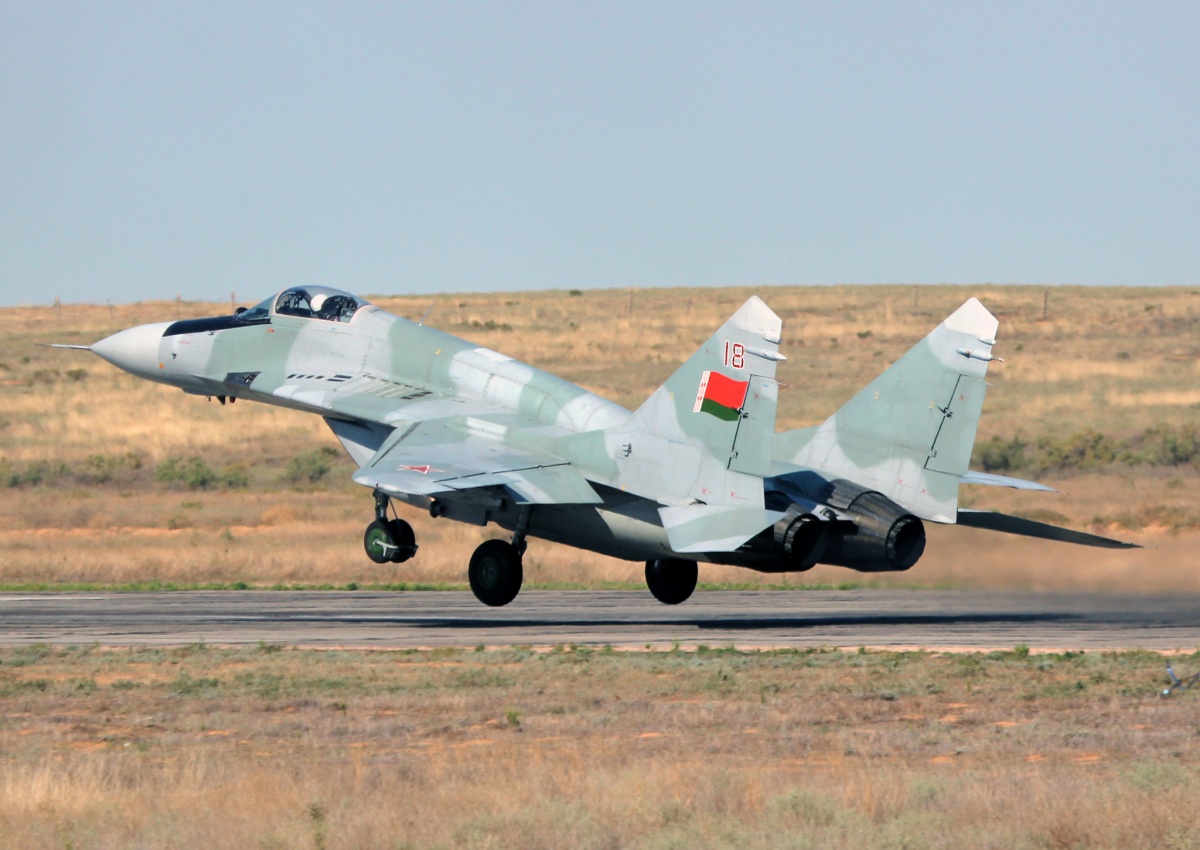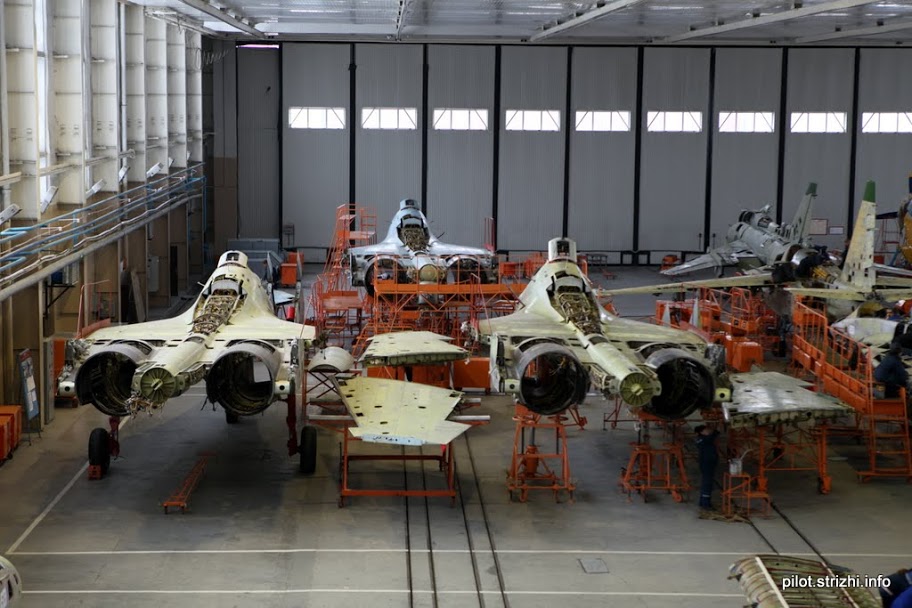Does Belarus really need Russian Su-30SM fighters?
On 20 June, during the 2017 Le Bourget international air show which took place near Paris, France, Belarus signed a contract for a batch of 12 Su-30SM fighters from Russia. The contract supposedly amounts to around $600m.
The Su-30SM is a modernised version of the Su-30MKI model of fighter aircraft, which was specially designed for the Russian Air Force and is the most modern in the Su-30 series. Russia also sold six Su-30SMs to the Kazakh Air Force.
The fighter is able to use modern high-precision air-to-air and air-to-surface weapons. The Su-30SM can not only hit air and surface targets with its own missile weapons, but also direct fighters and bombers with a smaller target detection range.
The first official combat use of the Su-30SM occurred during the Russian operation in Syria. The Russian media reported that Su-30SMs were used as multipurpose vehicles for conducting air patrols, covering attack aircraft and striking ground targets.
It’s all about money
According to Dmitry Shugaev, head of the Federal Service for Military-Technical Cooperation of the Russian Federation, the jets will be delivered gradually, in accordance with the terms prescribed in the contract. However, what these terms are precisely remains unclear. The Belarusian Minister of Defence, Andrej Raŭkoŭ, confirmed that the fighters had been purchased but stated only that 'this contract will come into force as soon as there is funding'.
Such uncertainty can mean two things: either the contact does not specify the precise terms for the delivery of the aircraft, or its fulfilment depends completely on Russia loans. Moreover, these conditions are not mutually exclusive, making implementation of the contract extremely dependent on the political relations between Belarus and Russia.
 Thus, on 7 April 2017, Lukashenka characterised his talks with Vladimir Putin in St. Petersburg thus: 'I want Russia to help us with the rearmament of the Belarusian army.
Thus, on 7 April 2017, Lukashenka characterised his talks with Vladimir Putin in St. Petersburg thus: 'I want Russia to help us with the rearmament of the Belarusian army.
Moreover, this rearmament must either be at their expense or at a low price. We will not be able to pay for modern arms ourselves: we have neither oil nor gas, and these are the main sources of rearmament'. This statement also points to the political character of the deal and the fact that its fulfilment is not guaranteed.
At the same time, some experts assume that Russia will provide preferential terms for Belarus. However, it does not seem that these discounts will be substantial. Firstly, Russia is experiencing economic problems of its own and can’t afford to exchange expensive modern aircraft for Belarus's repeated claims of loyalty. Secondly, providing this kind of 'present' for one ally will almost certainly cause all other CSTO members to make similar claims.
No discounts for close allies
The Russian media have cited sources close to the leadership of Rosoboronexport (A Russian company for defence industry export), who report that the Belarusian Defence Ministry made the deal directly with Irkut Corporation, without the Russian state's mediation.
According to them, the 12 Su-30SM fighters will cost Belarus about $600m. This will be the largest single contract for the purchase of Russian arms by Belarus in history. Previously, according to two contracts in 2012 and 2015, Belarus also received eight Yak-130s, a training and battle aircraft, which were also produced by Irkut.
If the data provided by the Russian media are accurate, then there was clearly no 'Russian discout'. One aircraft cost about $50m, the normal price for Su-30SMs for third countries, not for close military allies. For example, the Russian Defence Ministry purchased the fighters for $35m – more than 30% cheaper. Kazakhstan bought the aircraft at almost the same price, even cheaper because of the fluctuation of the Russian rouble.
That said, neither the full cost nor the details of the contract have been officially announced. This means that even taking the possible sum of $600m for 12 fighters, it is impossible to tell what exactly the contract provides for. Is the price for the aircraft alone or does it include service, support, spare parts, and pilot training?
An unaffordable Russian luxury
Concerning service, Belarusian officials and experts have noted that repair and maintenance for the Su-30s would be possible at the 558th aircraft repair plant in Baranavičy. Nevertheless, taking into account the fact that the electronics in Su-30SMs are largely Western-made, maintenance could be difficult and expensive for the Belarusian military: this could mean that it would need to be carried out in Russia. All these factors only increase the dependence of Belarus on Russia.
 At the same time, the purchase of only 12 Su-30SMs for Belarus's ageing air fleet does not solve the issue of Russia’s intention to establish an air base in Belarus. Belarus operates a fleet of 24 MiG-29s and 12 Su-25s, which the new aircraft are to replace.
At the same time, the purchase of only 12 Su-30SMs for Belarus's ageing air fleet does not solve the issue of Russia’s intention to establish an air base in Belarus. Belarus operates a fleet of 24 MiG-29s and 12 Su-25s, which the new aircraft are to replace.
Even if the Air Force is fully re-equipped with modern aircraft, this will not be the end of the Russian air base issue, as it is a political problem rather than a military one.
Another issue is the high operational cost of the Su-30SMs. The approximate flight hour cost for Su-30SMs is estimated at a minimum of $35,000. A pilot needs at least 100 hours a year to be ready for military operations. If Belarus prepares only 24 pilots for 12 double aircraft (a possible minimum), we are talking about $42m a year just to keep the aircraft ready. This would be around 10% of the 2016 budget for national security and defence.
Given the fact that Belarusian pilots do not get enough flight time even with Mig-29s (with flight hour costs at around $20,000), it is dubious whether Belarus can really afford these Su-30SMs at all. The full re-equipment of the Belarusian Air Force with Su-30SMs (which would entail 36 fighters) is impossible for financial reasons. This begs the question of whether the Belarusian Air Force needs to operate two-engine fighters like Su-30SM at all: Belarus is not comparable to Russia or Kazakhstan, which have much larger territories.
Thus, the purchase of Su-30SMs does not solve the current problems the Belarusian Air Force is facing; instead, it is creating more problems. In political, military, and financial terms, this contract only increases the dependence of Belarus on Russia. Such frivolous spending is also offensive for the Belarusian population, which is struggling with a worsening financial situation.



 On 21 May, the head of Russia's Federal Service for Military Technical Cooperation, Dmitry Shugaev commented that 'Russia
On 21 May, the head of Russia's Federal Service for Military Technical Cooperation, Dmitry Shugaev commented that 'Russia  However, money still remains an issue. When asked about the deliveries, Belarusian defence minister
However, money still remains an issue. When asked about the deliveries, Belarusian defence minister  A similar situation exists regarding combat helicopters. On 25 June, Russian military aviation blogger kloch4 published an abusive but noteworthy analysis of Minsk's plans to decommission its Mi-24 attack helicopters and
A similar situation exists regarding combat helicopters. On 25 June, Russian military aviation blogger kloch4 published an abusive but noteworthy analysis of Minsk's plans to decommission its Mi-24 attack helicopters and  As great as this might sound, this makes little difference for Belarus's offensive capacities. First, Minsk received only four tanks, even though the Belarusian defence ministry subsequently signed a contract with the Russian firm on modernising another batch of T-72s.
As great as this might sound, this makes little difference for Belarus's offensive capacities. First, Minsk received only four tanks, even though the Belarusian defence ministry subsequently signed a contract with the Russian firm on modernising another batch of T-72s.
